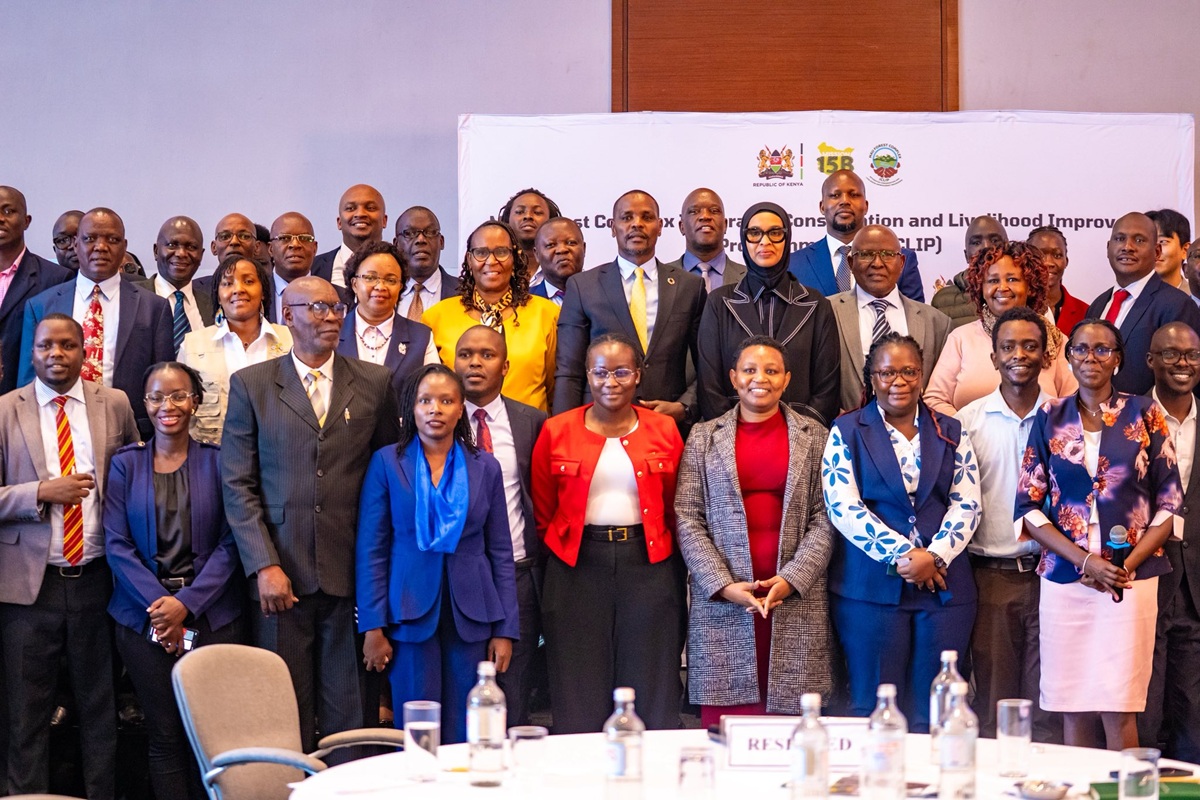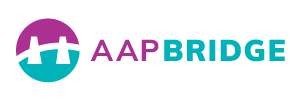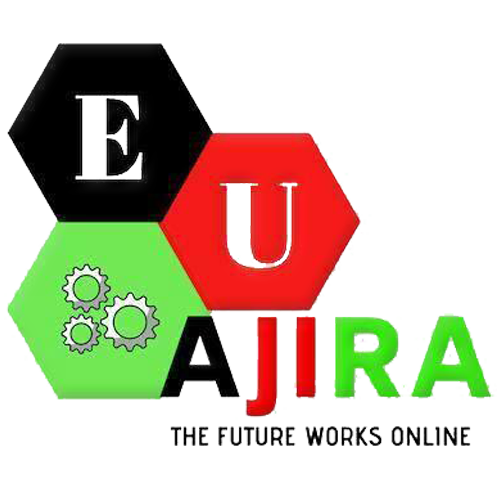Our Partners and Collaborations
The African Institute for Capacity Development (AICAD)
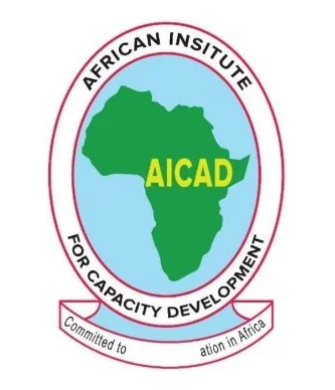 Agricultural Transformation) The African Institute for Capacity Development (AICAD) is a regional international organization jointly funded by the Governments of Kenya, the United Republic of Tanzania, and Uganda. Its headquarters are located at Jomo Kenyatta University of Agriculture and Technology (JKUAT) in Nairobi, Kenya. AICAD also operates country offices in each member state:
Agricultural Transformation) The African Institute for Capacity Development (AICAD) is a regional international organization jointly funded by the Governments of Kenya, the United Republic of Tanzania, and Uganda. Its headquarters are located at Jomo Kenyatta University of Agriculture and Technology (JKUAT) in Nairobi, Kenya. AICAD also operates country offices in each member state:
Water Transformation Pathways Planning
Using T-Labs to find transformative pathways to equitable and sustainable utilisation of Kenya’s Yala and Kingwal wetlands

The University was founded through Harambee spirit on 5th January 1972, as Western College of Arts and Applied Sciences (WECO) under the stewardship of the former fiery MP, Masinde Muliro. As chairman of the project executive committee, Muliro worked with Prof. Reuben J. Olembo (then Head, Department of Botany University of Nairobi) as secretary.
The establishment of the College was in response to the needs of the people of Western province to have a College that would provide a training ground for technical manpower requirements for the province and the nation. The College was also expected to inculcate a sense of self-help and self-reliance among its students and facilitate active participation of youth in national development. For more information visit their website at :https://www.mmust.ac.ke
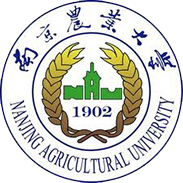
Nanjing Agricultural University (NAU) is one of the earliest institutions of higher agricultural education in China and a national key university under the Chinese Ministry of Education. The lineage of Nanjing Agricultural University can be traced back to 1902 and Sanjiang Normal School, a teacher training center in Nanjing. In 1952, Nanjing Agricultural College was founded through the merger of the two agricultural faculties belonging to University of Nanking (est. 1914) and National Central University (est. 1918) along with several departments of the Agricultural College of Zhejiang University. In 1984, the college was renamed Nanjing Agricultural University with the approval of the Ministry of Education.
NAU is a Project 211 institution, one of the top 100 universities in China given priority by the Ministry of Education for research funding, discipline construction and administrative supervision. NAU is also one of the Innovation Platforms for Outstanding Disciplines under the National 985 Excellence Initiative Project. The Moreover, a 2012 analysis of research citations by Thomson Reuters Essential Science Indicators found NAU among the top 1% of institutions in the fields of Agricultural Science, Plant & Animal Science and Environment/Ecology.

Western Michigan University is a national research university enrolling nearly 24,000 students from across the United States and 100 other countries. Founded in 1903, it is a learner-centered, discovery-driven and globally engaged public university that stands out among America’s more than 4,600 higher education institutions.
 Over the past 17 years, Kilimo Trust has built a solid reputation as
Over the past 17 years, Kilimo Trust has built a solid reputation asa reliable partner for sustainable market-led agricultural development in the East African region. With headquarters in Uganda, and affiliated subsidiaries in Kenya, Tanzania, Burundi and Rwanda, Kilimo Trust maintains a lean operations team, choosing to work through partnerships with local and regional actors for efficiency.
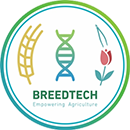
BREEDTECH project, formally titled “Building Capacity in Plant Breeding and Biotechnology Education and Research through Partnerships in Africa, the Middle East, and Europe for Agricultural Transformation,” is a three-year, cross-regional project funded by Erasmus+ Capacity Building for Higher Education (CBHE). This project unites higher education institutions and a private firm from Kenya, Ethiopia, Palestine, Italy, Sweden, and Serbia.
BREEDTECH builds capacity in plant breeding and biotechnology education and research across Africa, the Middle East, and Europe, fostering collaboration between African and Palestinian HEIs and European research communities. This initiative engages researchers and academics in exploring essential concepts, advanced tools, and digital technologies in plant breeding and biotechnology.
 The International Center for Development and Decent Work (ICDD) is a global multidisciplinary network of nine partner universities, including the Egerton University, with its head office at the University of Kassel (Germany). The ICDD cooperates closely with the International Labour Organization and various non-governmental organizations.
The International Center for Development and Decent Work (ICDD) is a global multidisciplinary network of nine partner universities, including the Egerton University, with its head office at the University of Kassel (Germany). The ICDD cooperates closely with the International Labour Organization and various non-governmental organizations.
- International Center for Development and Decent Work (ICDD)
- Background Cooperation
- Partner Activity Report
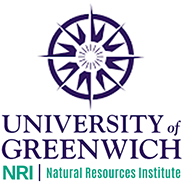 Egerton University, in partnership with the University of Greenwich, UK, has gained funding for a 2-year project with the Anolei Women Camel Milk Co-operative. The project objective is to add value to camel milk value chain in Northern Kenya and to strengthen capacity for new value-added products and enhance productivity in camel milk production, collection, and marketing. This project is funded and supported by the UK Government through its African Agriculture Knowledge Transfer Partnerships (AAKTP) scheme.
Egerton University, in partnership with the University of Greenwich, UK, has gained funding for a 2-year project with the Anolei Women Camel Milk Co-operative. The project objective is to add value to camel milk value chain in Northern Kenya and to strengthen capacity for new value-added products and enhance productivity in camel milk production, collection, and marketing. This project is funded and supported by the UK Government through its African Agriculture Knowledge Transfer Partnerships (AAKTP) scheme.
For more information visit their website at:http://ktp.innovateuk.org/
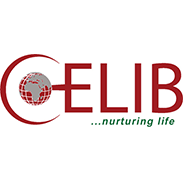 The Centre of Excellence in Livestock Innovation and Business (CoELIB) has its origins in the iLINOVA (Innovation for the Livestock Industry) initiative that focused on strengthening capacity for participatory management of indigenous livestock to encourage agricultural innovation in Eastern, Southern and Western Africa. This initiative was coordinated by Egerton University in Kenya in collaboration with lead partners in the form of Lilongwe University of Agriculture and Natural Resources (LUANAR) in Malawi and Obafemi Awolowo University (OAU) in Nigeria. One of the key tasks of this initiative was to establish a Centre of Excellence for livestock innovation and business that builds on existing capacity and fosters innovation and agri-business development. The CoELIB has modern infrastructure, including a main project office, laboratories, specialised studio and computer rooms, and was officially launched in 2016 at the Inaugural World Congress on Innovation for Livestock Development. CoELIB has been established to support the formation of regional centres and networks to strengthen research and innovation capacities. For more information visit their website at:http://www.coelib.org/
The Centre of Excellence in Livestock Innovation and Business (CoELIB) has its origins in the iLINOVA (Innovation for the Livestock Industry) initiative that focused on strengthening capacity for participatory management of indigenous livestock to encourage agricultural innovation in Eastern, Southern and Western Africa. This initiative was coordinated by Egerton University in Kenya in collaboration with lead partners in the form of Lilongwe University of Agriculture and Natural Resources (LUANAR) in Malawi and Obafemi Awolowo University (OAU) in Nigeria. One of the key tasks of this initiative was to establish a Centre of Excellence for livestock innovation and business that builds on existing capacity and fosters innovation and agri-business development. The CoELIB has modern infrastructure, including a main project office, laboratories, specialised studio and computer rooms, and was officially launched in 2016 at the Inaugural World Congress on Innovation for Livestock Development. CoELIB has been established to support the formation of regional centres and networks to strengthen research and innovation capacities. For more information visit their website at:http://www.coelib.org/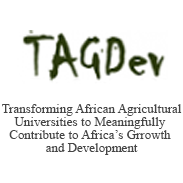 TAGDev Program is implemented at Egerton University, Kenya and Gulu University, Uganda. This eight year program (2016-2024) seeks to transform African agricultural universities and their graduates to better respond to developmental challenges through enhanced application of science, technology, business and innovation for rural agricultural transformation. The program is focused on transformation at individual, community, institutional, national and regional levels. Its special focus is on agriculture as a massifier of opportunities for youth and as a mechanism to achieve financial independence and moving millions of poor smallholder farmers out of poverty.
TAGDev Program is implemented at Egerton University, Kenya and Gulu University, Uganda. This eight year program (2016-2024) seeks to transform African agricultural universities and their graduates to better respond to developmental challenges through enhanced application of science, technology, business and innovation for rural agricultural transformation. The program is focused on transformation at individual, community, institutional, national and regional levels. Its special focus is on agriculture as a massifier of opportunities for youth and as a mechanism to achieve financial independence and moving millions of poor smallholder farmers out of poverty.
For more information visit their website at: https://tagdev.egerton.ac.ke/
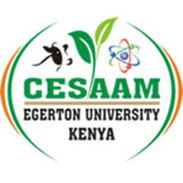 The Centre of Excellence in Sustainable Agriculture and Agribusiness Management (CESAAM) at Egerton University (Kenya), funded by World Bank is modeled to address the above issues. The Center also is also situated in the region with countries that are either in conflict or emerging from conflict, such as South Sudan, Somalia, Rwanda and Burundi. The Universities and agro-industry in these countries are facing staffing challenges in all fields, more so in Agriculture and agribusiness, and the center will contribute to the capacity building of the these institutions besides enhancing Kenyan own institutions, with expected result in better trained agricultural and agribusiness manpower, high level Agri-industrial development which in turn will contribute to agricultural development.
The Centre of Excellence in Sustainable Agriculture and Agribusiness Management (CESAAM) at Egerton University (Kenya), funded by World Bank is modeled to address the above issues. The Center also is also situated in the region with countries that are either in conflict or emerging from conflict, such as South Sudan, Somalia, Rwanda and Burundi. The Universities and agro-industry in these countries are facing staffing challenges in all fields, more so in Agriculture and agribusiness, and the center will contribute to the capacity building of the these institutions besides enhancing Kenyan own institutions, with expected result in better trained agricultural and agribusiness manpower, high level Agri-industrial development which in turn will contribute to agricultural development.
For more information visit their website at: https://cesaam.egerton.ac.ke

For more information visit their website at: www.empowerment.co.ke

The Faculty of Law Legal Aid Project is funded by UNDP-Amkeni Wakenya with an objective to facilitate enhanced access to justice by the marginalized and the poor in Nakuru County and to build a sustained and structured legal aid service within Nakuru County. The project aims to address the challenge of violation of human rights for the marginalized and poor groups of people living within Nakuru County beginning with select sub counties namely, Nakuru Town West, Naivasha, Subukia, Molo, Bahati and Rongai. These groups of people have limited access to institutions providing legal services and enforcement of human rights. Their plight as vulnerable groups worsens their situation, further isolating them from equal treatment before the law. They also find mainstream channels of accessing information inaccessible, making it hard for them to know their rights or how to enforce them. There is therefore little access to information on human rights and identification or referral of human rights abuses is at its lowest.
The target groups for this project are therefore the marginalized and vulnerable people, particularly the poor, those living with HIV and Aids, women, youth and persons living with disabilities. These groups of people are often shunned in decision making in governance matters at the national and county level. They face many hurdles in accessing justice and violations of human rights among them is rampant. These challenges are compounded by the fact that most of these people are poor and can hardly meet their basic human needs. Under the circumstances, the pursuit of human rights becomes a far-fetched idea, considering their precarious position in the society.
For more information visit their website at: follap.egerton.ac.ke
Ajira Digital Club (ADC)
The Ajira Digital Program is a government initiative driven by the Ministry of ICT, Innovations and Youth Affairs to empower over one million young people to access digital job opportunities.
The program seeks to position Kenya as a choice labour destination for multinational companies as well as encourage local companies and public sector to create digital work. The government digitization projects already create lots of viable micro work that can be completed by digital workers. Read More...
-
Egerton University Showcases Mau Restoration Gains at MFC-ICLIP Stock-Take Meeting
Vice-Chancellor Prof. Isaac Kibwage on Wednesday attended the First Edition Stock-Take Meeting of the Mau Forest Complex Integrated Conservation and...27 February 2026 -
Orientation Not Optional, DVC Administration Finance and Planning Tells New Staff as He Anchors Service on the Constitution
For 76 staff who joined Egerton University over the past year, orientation was not just a routine induction session. It was a constitutional call to...26 February 2026 -
Egerton University Staff Run for Environment in Annual Mau-Egerton Cross Country
Egerton University came alive with energy, color, and purpose as staff, partners, and sponsors took part in the annual Mau-Egerton cross...24 February 2026
Novus International Inc., Lake Victoria Basin Commission (LVBC), Swiss Tropical & Public Health Institute, Ministry of Environment and Mineral Resources, University Kassel - Germany, The Open University of Tanzania (OUT), University of Vienna - Austria, BOKU University, Orrorin Community Organization (OCO) - Baringo, British Council and East African Growers Group Ltd., through the African Knowledge Transfer Prgramme (AKTP), Kenya Electricity Generating Company Limited (KenGen), Leibniz-Institute of Agricultural Engineering Potsdam-Bornim (ATB,Germany), The International Crops Research Institute for the Semi-Arid Tropics (ICRISAT), Kenya Forestry Research Institute (KEFRI), Tea Research Foundation (TRF), Kenya Wildlife Service (KWS), Dairy Training Institute (DTI) Naivasha, Kenya Agricultural & Livestock Research Organization (KARI), University of South Africa (UNISA), Nanjing Agricultural University (NAU), People€™s Republic of China, University of Illinois at Urbana-Champaign, USA, International Agricultural Centre of Wageningen, The Netherlands, Karlstads Universitet, Sweden, Rift Valley Provincial General Hospital, Nakuru, among others.





